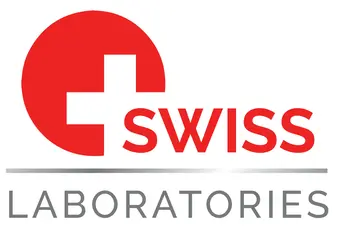- Home
- Cancer Immunotherapy
- CAR-T for Multiple Myeloma
CAR-T for Multiple Myeloma
Multiple myeloma is a cancer of plasma cells in the bone marrow. Bone marrow produces three blood cells: white blood cells, red blood cells, and platelets. Plasma cells develop from B lymphocytes (B cells), a type of white blood cell part of the body's immune system. Plasma cells make antibodies that protect us from infection and toxins.
Multiple Myeloma begins when a plasma cell becomes abnormal and divides in an uncontrolled fashion. The abnormal plasma cells are known as myeloma cells. As they multiply, they crowd out normal, healthy cells. Normally, plasma cells make up less than five percent of the cells in the bone marrow. In Multiple Myeloma, the percentage of plasma cells increases to more than 10 percent.
The increased number of abnormal plasma cells can lead to bone destruction and high calcium levels in the blood (hypercalcemia). In addition, the abundance of abnormal plasma cells can also interfere with the functioning of other blood cells, particularly red blood cells that carry oxygen to tissues throughout the body.
Part of the immune system produces antibodies that fight infections and diseases. For example, malignant plasma cells, or myeloma cells, have an abnormal antibody known as M protein (also called monoclonal protein) or a small part of the antibodies called light chains that collect in blood and urine. The M protein does not help fight infection. Instead, it can cause the blood to thicken and damage the kidneys. Since myeloma cells are typically found throughout the body, the disease is called Multiple Myeloma. However, "myeloma" and "Multiple Myeloma" are often used interchangeably.
The USA closely tracts statistics on cancer. In 2020, there were 32,270 new cases of Multiple Myeloma, making up 1.8% of all new cancer cases in the United States. The five-year survival rate is 53.9%. And there are 12,830 estimated deaths per year from Multiple Myeloma, accounting for 2.1% of all cancer deaths.
CAR T-cell treatments increased the survival rate in patients with Multiple Myeloma who received at least three previous lines of therapy with standard drugs, including proteasome inhibitors, immunomodulatory drugs, and CD38 antibodies. The overall response rate to the treatment was 97%, while the complete response rate and progression-free survival rates were 67% and 77%, respectively. The overall survival rate was 89%.
These are the quick results of our treatments:
CAR T-cells for Multiple Myeloma
CAR-T has treated 37 Multiple Myeloma patients
35 of them (87%) responded to the treatment
20 of them showed (57%) complete remission within the first six months
Of the 18 long-term follow-up patients (median follow-up time ten months), 13 (72%) are relapse-free.
According to the study, 85% of the patients treated by CAR-T may experience CRS caused by T cell activation. The MMKTM has kept a very mild reaction (no more than grade 2) and CRS helps fight cancer.
The Side Effects of CAR T-cells
The side effects of CAR T-cells vary with the type of treatment the patient uses. There are several large companies and a few smaller companies with differing technology. The newer technologies have fewer side effects than the so-called first generation of CAR T-cells.
The most prominent side effect of CAR T-cell treatment is Cytokine-Release Syndrome (CRS). This potentially severe side effect is frequently associated with CAR T-cell therapy. Cytokines (chemical messengers that help the T cells carry out their functions) are produced when the CAR T-cells multiply in the body and kill the cancer cells. CRS symptoms can range from mild flu-like symptoms that include.
Nausea
Fatigue
Headache
Chills
Fever
